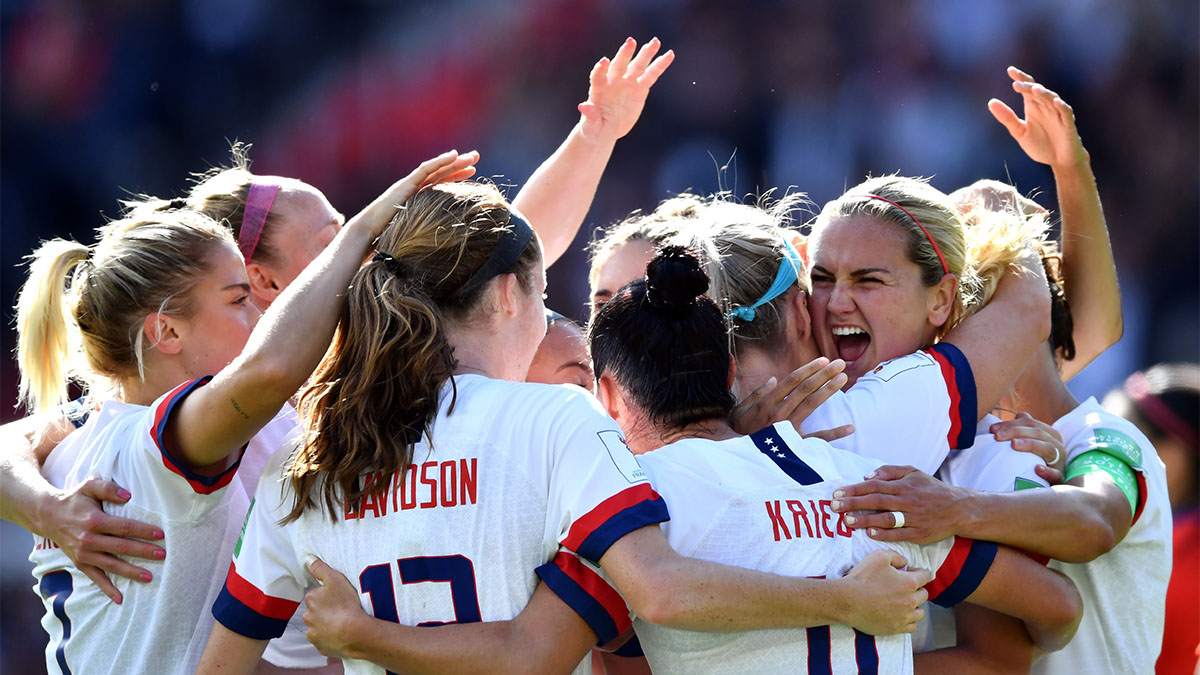USWNT, U.S. Soccer agree to mediation over World Cup pay

The U.S. women's national team and U.S. Soccer Federation have agreed to mediation over the team's pay discrimination lawsuit. Mediation will begin after the World Cup ends the Wall Street Journal reported.

In the suit, filed on March 8 in the U.S. District Court in Los Angeles, the players accused the federation of “institutionalized gender discrimination.”
The team, one of the United States’ most successful competitors across international sport, claims the governing body for U.S. soccer discriminated against the players via their paychecks, how and where they played, how they trained and coached, received medical care and traveled to matches.
The WSJ reported that lawyers for the women contacted the U.S. Soccer Federation after the World Cup began on June 7 about the potential for mediation. A spokesman for U.S. Soccer told the Journal: "We look forward to everyone returning their focus to the efforts on the field as we aim to win another title."
The U.S. team’s lawsuit is similar to the actions of the U.S. women’s hockey team before the 2018 Winter Olympics when the team threatened not to participate in the 2017 International Ice Hockey Federation world championships because of unequal treatment. With help from the NHL, the parties reached a resolution on the pay gap between the women’s hockey team and the men’s reached a negotiated settlement. The women’s hockey team, much like the women’s soccer team, displayed sustained success in international competition, winning three straight IIHF world championships and two Olympic gold medals, three silvers and one bronze since the sport was introduced in the games in 1998. The team had threatened not to participate in last year’s Winter Olympics in South Korea if the salary issue was not resolved.
That resolution opened the doors to the team competing and winning their first gold medal since 1998, beating archrival Canada.
According to the New York Times, the American soccer players have requested class action status and are seeking to represent anyone who played for the team since Feb. 4, 2015.
The suit alleges violations of the Equal Pay Act and violations of Title VII of the Civil Rights Act of 1964.
“Despite the fact that these female and male players are called upon to perform the same job responsibilities on their teams and participate in international competitions for their single common employer, the USSF, the female players have been consistently paid less money than their male counterparts,” the suit said. “This is true even though their performance has been superior to that of the male players – with the female players, in contrast to male players, becoming world champions.”
While the America women have won three of the seven Women’s World Cups played, the highest finish for the U.S. men’s national team in the World Cup’s nearly 90-year history of the men’s event was 2002, when the team reached the quarterfinals.. The U.S. men did not qualify for the 2018 World Cup.
Both the men’s and women’s teams have separate collective bargaining agreements with U.S. Soccer, the NYT reported, with different payment structures. The men receive higher bonuses when they play for the U.S., but are paid only when they make the team. The women receive guaranteed salaries but with smaller match bonuses.
However, the multimillion dollar bonuses the teams receive from FIFA for participating in the World Cup are enormous – there is a pool of $400 million for the 32 men’s teams versus $30 million for the 24 women’s teams in the tournament.
The USWNT nearly went on strike before the 2016 Rio Olympic Games over pay and reached a contentious new collective bargaining agreement. Five players – including Hope Solo, Carli Lloyd, Becky Sauerbrunn, Alex Morgan and Megan Rapinoe – filed a federal complaint in 2016 accusing US Soccer of wage discrimination. The lack of resolution on that case led to this filing, the NYT reported.
Related Articles
Donations aim to eliminate U.S. soccer pay differences
Opinion: USWNT discrimination lawsuit underscores importance of Title IX
U.S. women’s soccer team sues governing body over gender discrimination


